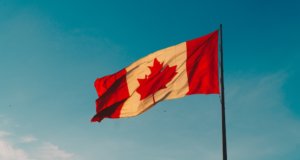Bank of Russia mulls requirements for websites of overseas FX brokers
As the novel FX law seems not to affect the activity of overseas FX brokers, the Bank of Russia considers requirements towards their Russian websites.

The Russian Forex sector got officially regulated in December 2014, when president Vladimir Putin signed the profile law. The law obliges Forex companies that are willing to provide their services to Russian clients to establish a business in Russia and to obtain a license of a Forex dealer.
Many of the requirements set by the new law, however, such as the relatively high net capital requirement of RUB 100 million (USD 1.74 million/EUR 1.63 million), have pushed some FX brokers to seek alternative solutions. Let’s note that only six companies have thus far obtained the coveted Russian FX dealer licenses – Alpari Forex, VTB 24 Forex, Teletrade Group, TrustForex, Finam Forex, Forex Club.
What about the others? They have either left the Russian market, that is, stopped servicing Russian clientele and closed their branches in the country, or continued to offer services to Russian clientele from other jurisdictions.
Last year, the Bank of Russia received 210 client complaints against Forex companies registered overseas. This is slightly down from the 236 complaints received in 2015.
The Russian “Megaregulator” is now considering establishing requirements for the websites of foreign FX companies targeting Russian clients, according to Russian newspaper “Kommersant”, quoting Vladimir Chistyukhin, Deputy Governor of the Bank of Russia.
Mr Chistyukhin notes that the goal of the Bank of Russia is to protect the Russian customers from non-disclosure of information and fraudulent activities of Forex companies. Regarding overseas businesses, however, the powers of the regulator are limited, given that the Russian laws do not apply outside of the Russian Federation. “Now, we can only block websites in case their content is not compliant with the law”, he said.
Mr Chistyukhin suggests the implementation of requirements towards websites of foreign FX companies – these rules should concern information disclosure and protection of consumer rights. Of course, this effort is impossible without any support from and co-operation with foreign authorities.
In the meantime, the Forex industry within Russia continues to battle with the bureaucratic burden that prevents it from commencing normal activities. The last bureaucratic hurdle to clear is drafting and implementing the common standards for Forex dealers. A special committee at Russia’s “Megaregulator” is holding meetings regarding these standards, with the relevant project having already been amended several times.









